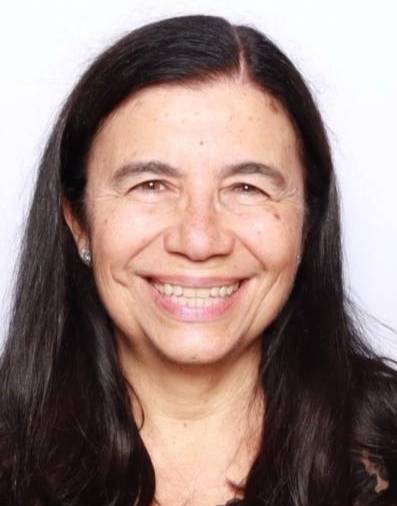
Victoria González-Rivera, Ph.D.
 Professor and Department Chair
Professor and Department Chair
Office: AL-394
Email: [email protected]
Dr. Victoria González-Rivera has been living on the U.S./Mexico border since 1999 and considers this region her second home. The daughter of a Nicaraguan man and a white U.S.-American woman, she grew up in Nicaragua during the last years of the right-wing Somoza dictatorship, the leftist insurrection of 1978, the Sandinista revolution of 1979, and the Contra War of the early 1980s. After graduating with a B.A. in History, Women's Studies, and Latin American Studies from Oberlin College in 1990, she obtained her M.A. in Latin American History from the University of New Mexico and a Ph.D. in Latin American History from Indiana University. Professor González-Rivera is the first woman of Nicaraguan ancestry to obtain a Ph.D. in Latin American History from a U.S. university. She has played a groundbreaking role in documenting western Nicaraguan women's history and western Nicaragua's LGBTQIA+ history and has contributed significantly to the conversation on confronting anti-Black racism in western Nicaragua.
Her first monograph, Before the Revolution: Women's Rights and Right-Wing Politics in Nicaragua, 1821-1979, was published in 2011 by Penn State University Press. Her most recent book, Five Hundred Years of LGBTQIA+ History in Western Nicaragua, was published by the University of Arizona press in October, 2024. That same year she published a book chapter on Nicaraguan women's efforts to gain the vote titled “The History of Women’s Suffrage in Nicaragua. An Incomplete History” in the volume Women’s Suffrage in the Americas (University of New Mexico Press). Her essay "Why My Nicaraguan Father Did Not 'See' His Blackness and How Latinx Anti-Black Racism Feeds on Racial Silence" is forthcoming in the edited volume Central American Women in Diaspora (University of Arizona Press, 2026). In 2018 she received an American Council of Learned Societies (ACLS) Collaborative Fellowship. She has also received support from the National Endowment for the Humanities and the American Association of University Women.
Professor González-Rivera has been part of the Department of Chicana and Chicano Studies since 2005. She teaches courses on Mexican, U.S., and Chicanx history. Her classes address the history of colonial Mexico and the history of Chicana/os in the U.S., as well as the history of U.S. intervention in Central America and Central American migration to the U.S. In addition to her work as a teacher, scholar, and mentor at SDSU, she is an active member of her community and has served on several non-profit boards. Her new book project addresses the history of Afromestizos in western Nicaragua in the 19th and 20th centuries.